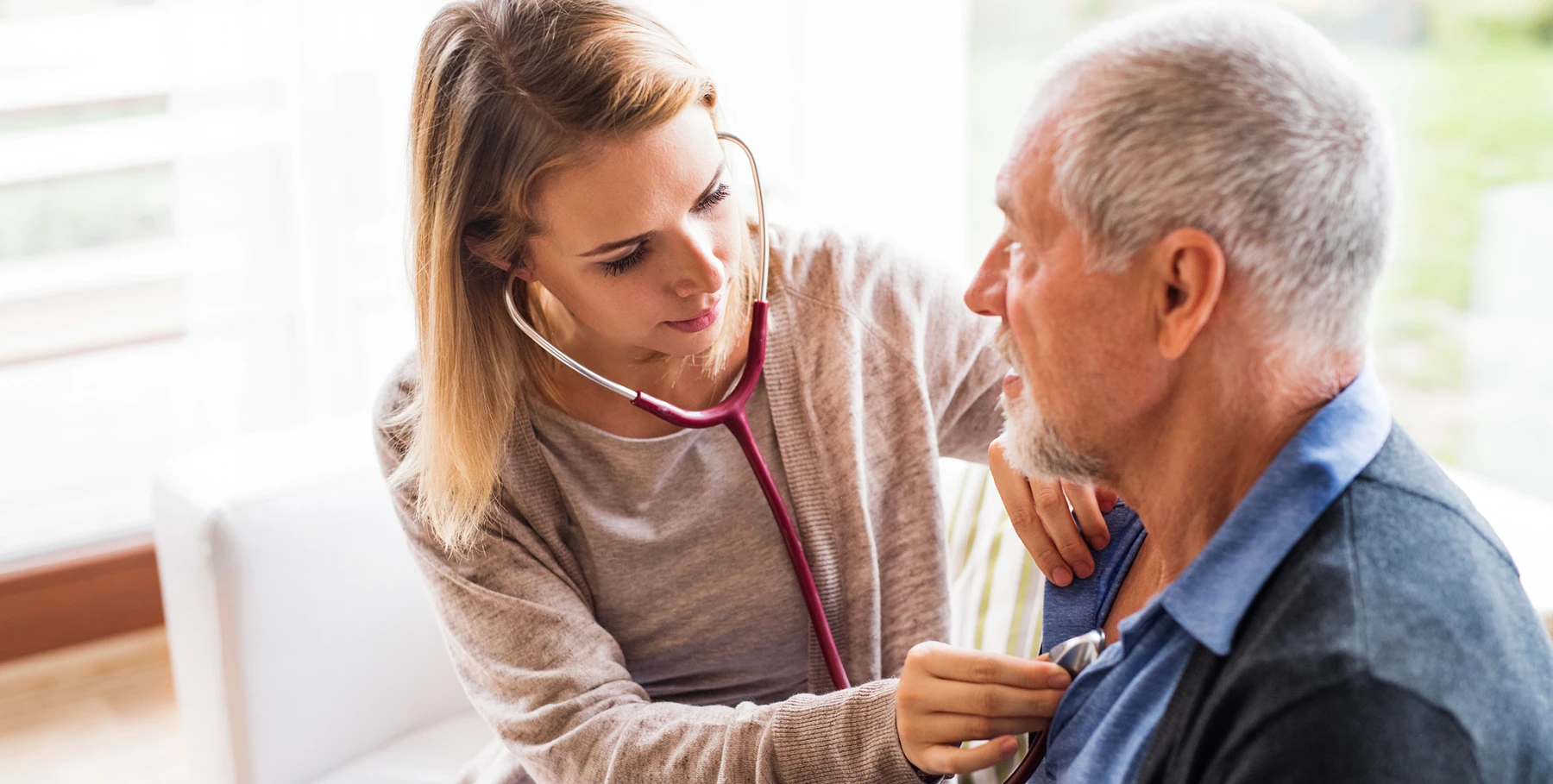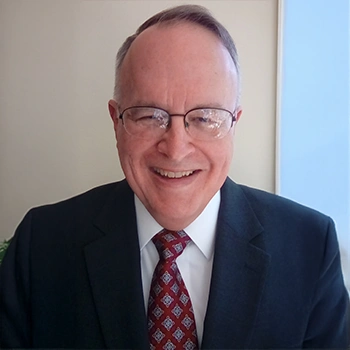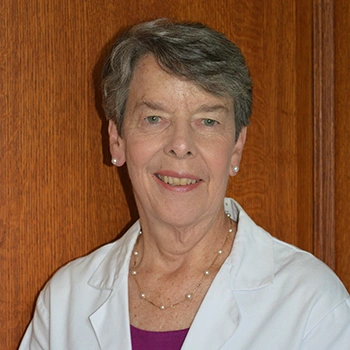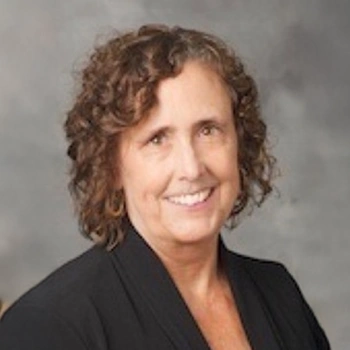One-on-one mentoring partnerships between physician volunteers and safety net clinic providers are one of the many things that make MAVEN Project unique. The Laurie Green, MD Mentor Award is given annually to a volunteer who goes above and beyond in service to his/her mentees. We are honored to present the 2024 Mentor Award to Robert Lohr, MD.
Can you talk about the need for expertise in internal medicine in underserved communities?
By definition, internal medicine is complex. Patients typically have more than one thing going on, and that complexity is difficult to manage. There’s periodic operative stuff, but no surgery. The internal medicine residency is three years, and once that’s completed, you can go on to a fellowship in all aspects of internal medicine—cardiology, gastroenterology, pulmonology, and so forth. General internal medicine includes all of that and builds a lot of expertise.
Meanwhile, many community health practitioners have only just started their careers in medicine; they may not have much prior clinical experience. Patients come in with multiple ongoing problems, and clinicians often have to see them in a very short time frame, which is intrinsic to community health settings. Understanding and treating a patient with complex conditions in 20 minutes is very hard. So the best thing I can do with my experience is help clinicians develop a framework that helps them approach this type of patient as efficiently as possible. They don’t necessarily need knowledge from us; they need wisdom.
Can you expand on the difference between knowledge and wisdom in medicine?
For knowledge, practitioners can access a lot of medical resources, but the information they find won’t necessarily fit a specific patient—maybe due to a concurrent condition or other factor that requires modification. That’s where wisdom comes in. We can all look up how we treat congestive heart failure; the research might recommend four different drugs. But if the patient’s potassium is high or their kidney function has deteriorated, our options may be different. In that sense, wisdom is more important in medicine than knowledge.
How does mentorship enable providers to deliver better care?
I’ve done both clinical and leadership mentoring; clinical mentoring is typically for someone just starting their career. They benefit most from being given a framework for how to approach patients and build trust with them. It’s so rewarding to see how they grow over time. The questions and issues that they bring to the table evolve as time goes on. You can see how their thinking has matured and how they’ve improved care on their own as a result of having a mentor in the very beginning.
Leadership mentoring tends to apply to a good provider whom peers consider a natural leader and is then promoted into a leadership position at the clinic. But they have no formal training or background for those responsibilities. So mentoring them starts with the basics—how to set an agenda, run a meeting, and control a meeting. They tend to pick things up very quickly and continue progressing as they see how everything works, but they need that guidance at the start.
How do you help practitioners become stronger leaders for their clinics?
Eventually, they might have ideas for the clinic or want to implement new programs, so they have to learn about change management, which is key for leaders anywhere. In those mentoring sessions, we talk about things like knowing your audience and predicting roadblocks. If a colleague wants to develop something like a procedure clinic—for example, designating a weekday when all procedures are done—leaders need to know how to develop a business plan and how to present it to the people who are going to do the financing. They’ll also have to consider what resources they’ll need, who’s going to staff it, what the team will look like, how they’ll communicate, and all the rest. Finally, you need to define metrics that tell you how it’s working.
This is how leadership mentoring evolves from the basics to more advanced topics. Our mentor-mentee relationship evolves over time too—it can become more personal in covering things like burnout and finding balance. Sometimes I feel like more of a therapist!
Can you give an example of how leadership mentoring looks in practice?
I have a mentee who leads a clinic in New Mexico that is funded by the local tribal governance but is actually run by the Department of Public Health, which means she’s dealing with two significant bureaucracies. A lot of those challenges go back to change management. When she presents a proposal to the tribal council, who is in the audience? What are they going to ask? What roadblocks might they introduce? What are the expenses like? She has an excellent handle on everything, but I can help as a sounding board as she sorts through each piece. It’s very complicated situation, but honestly, it has been fun to work on together!
Who would clinic providers go to if they didn’t have you as a resource?
They might take online or in-person courses through various organizations, but of course that takes time and financial commitment. Or they might go to the clinic’s medical director, but often that person doesn’t have the capacity to train them.
Similarly, it’s common in medical practices for there to be both doctors and administrative staff, but they might not know how to work together and move things forward. The administration might be a C-suite or offsite, and they don’t understand and can’t see for themselves how practitioners work.
So there might be other resources available, but none are guaranteed to help clinicians provide better care.
Can you share a particularly rewarding experience from your work with MAVEN Project?
I just did a consult with a nurse practitioner about a patient with six concurrently active problems who hadn’t been to a doctor or taken his medications in a while. The nurse practitioner outlined the patient’s history, lab work, data, and physical findings, and ended with, “I’m just not sure where to start.” Within hours, I got back to her with a framework to help her make sense of all the patient’s conditions and how to begin addressing them. That service is an invaluable asset to community health practitioners.
Remember that for new clinicians—those who have been practicing two years or less—scenarios like this can be overwhelming, and they’re unfortunately common. They want to do the right thing and help their patient, but finding an answer can generate a lot of anxiety.
Are there any medical innovations you’ve observed over the course of your career that continue to influence how you practice and/or advise others?
One is the development of modified antibody drugs for cancer and autoimmune diseases, which have dramatically simplified the treatment process for patients and practitioners. Second, we’ve seen a lot of advancement in surgical techniques—for example, we can now replace an aortic valve without an incision. It can be done through an artery in the arm, and patients go home in a day or two, where they used to spend two weeks recovering in the hospital.
More generally, the availability of information has been transformative. While working with second-year medical students, one saw a patient with a rash, and came back with a highly articulate description that was surprising given he had no dermatology training. It turns out he simply Googled it! But Google can’t tell you everything, of course—now you need to apply wisdom. Nevertheless, easy access to information has transformed the medical field.
Looking back on your career, what accomplishment are you most proud of?
One achievement that stands out was making five trips to Haiti after the 2010 earthquake with teams from the Mayo Clinic. I had never done anything like that before, but I was drawn to the challenge. The first couple of trips were about providing care in environments dramatically different from the Mayo Clinic—no air conditioning or running water, a very rudimentary x-ray machine, and a limited lab. Some machinery only worked certain hours of the day. But we did some good work and helped a lot of people.
Over time, the visits began to focus more on medical education, which had a lasting impact on providers there. I’m proud to have been recognized in several settings by students as being a good teacher—that’s always been very meaningful to me.
Another accomplishment was my involvement with the American College of Physicians, the main professional organization for internal medicine. I was the governor of the Minnesota chapter, then elected to the board of regents, then elected as treasurer. Those years were very rewarding.
Currently, in addition to MAVEN Project, I volunteer at the local Salvation Army clinic, which includes teaching components, so those two opportunities complement each other very well.
Based on your own experience, why is MAVEN Project’s peer-to-peer model so effective in helping patients?
Giving clinicians access to expertise that helps them get the ball rolling immediately moves patient care along so much faster and more successfully. Clinicians are very time-constrained, and patients often can’t afford to wait to see a specialist. But MAVEN Project consults are completed within a matter of hours. Even if the patient ends up needing to see an endocrinologist, that visit will be so much more informed and useful because of their primary care provider’s previous interaction with a MAVEN Project volunteer. It’s a transformative way of managing patients.





